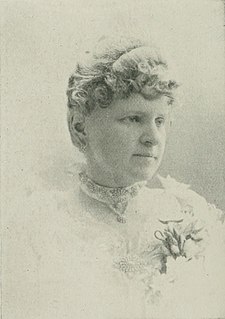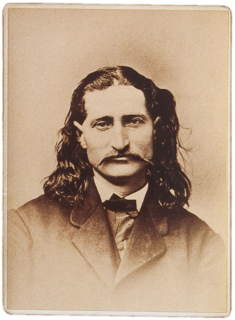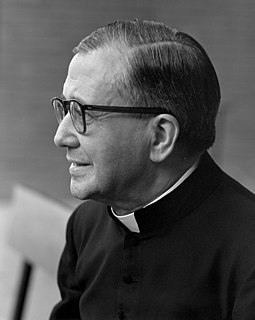A Quote by Adrienne Rich
As her sons have seen her: the mother in patriarchy: controlling, erotic, castrating, heart-suffering, guilt-ridden, and guilt-provoking; a marble brow, a huge breast, an avid cave; between her legs snakes, swamp-grass, or teeth; on her lap a helpless infant or a martyred son. She exists for one purpose: to bear and nourish the son.
Related Quotes
I once picked up a woman from a garbage dump and she was burning with fever; she was in her last days and her only lament was: My son did this to me. I begged her: You must forgive your son. In a moment of madness, when he was not himself, he did a thing he regrets. Be a mother to him, forgive him. It took me a long time to make her say: I forgive my son. Just before she died in my arms, she was able to say that with a real forgiveness. She was not concerned that she was dying. The breaking of the heart was that her son did not want her. This is something you and I can understand.
For a mother the project of raising a boy is the most fulfilling project she can hope for. She can watch him, as a child, play the games she was not allowed to play; she can invest in him her ideas, aspirations, ambitions, and values - or whatever she has left of them; she can watch her son, who came from her flesh and whose life was sustained by her work and devotion, embody her in the world. So while the project of raising a boy is fraught with ambivalence and leads inevitably to bitterness, it is the only project that allows a woman to be - to be through her son, to live through her son.
The good enough mother, owing to her deep empathy with her infant, reflects in her face his feelings; this is why he sees himselfin her face as if in a mirror and finds himself as he sees himself in her. The not good enough mother fails to reflect the infant's feelings in her face because she is too preoccupied with her own concerns, such as her worries over whether she is doing right by her child, her anxiety that she might fail him.
Happy is that mother whose ability to help her children continues on from babyhood and manhood into maturity. Blessed is the son who need not leave his mother at the threshold of the world's activities, but may always and everywhere have her blessing and her help. Thrice blessed are the son and the mother between whom there exists an association not only physical and affectional, but spiritual and intellectual, and broad and wise as is the scope of each being.
It is as great a crime to leave a woman alone in her agony and deny her relief from her suffering as it is to insist upon dulling the consciousness of a natural mother who desires above all things to be aware of the final reward of her efforts, whose ambition is to be present, in full possession of her senses, when the infant she already adores greets her with its first loud cry and the soft touch of its restless body upon her limbs.
I think that one morning, the Papess woke in her tower, and her blankets were so warm, and the sun was so golden, she could not bear it. I think she woke, and dressed, and washed her face in cold water, and rubbed her shaven head. I think she walked among her sisters, and for the first time saw that they were so beautiful, and she loved them. I think she woke up one morning of all her mornings, and found that her heart was as white as a silkworm, and the sun was clear as glass on her brow, and she believed then that she could live, and hold peace in her hand like a pearl.
So your strength is failing you? Why don't you tell your mother about it? ... Mother! Call her with a loud voice. She is listening to you; she sees you in danger, perhaps, and she-your holy mother Mary-offers you, along with the grace of her son, the refuge of her arms, the tenderness of her embrace ... and you will find yourself with added strength for the new battle.
Mr Thornton would rather have heard that she was suffering the natural sorrow. In the first place, there was selfishness enough in him to have taken pleasure in the idea that his great love might come in to comfort and console her; much the same kind of strange passionate pleasure which comes stinging through a mother's heart, when her drooping infant nestles close to her, and is dependent upon her for everything.
She sat leaning back in her chair, looking ahead, knowing that he was as aware of her as she was of him. She found pleasure in the special self-consciousness it gave her. When she crossed her legs, when she leaned on her arm against the window sill, when she brushed her hair off her forehead - every movement of her body was underscored by a feeling the unadmitted words for which were: Is he seeing it?
And I ask myself what it is about me that makes this wonderful, beautiful woman return. Is it because I'm pathetic, helpless in my current state, completely dependent on her? Or is it my sense of humour, my willingness to tease her, to joke my way into painful, secret places? Do I help her understand herself? Do I make her happy? Do I do something for her that her husband and son can't do? Has she fallen in love with me? As the days pass and I continue to heal, my body knitting itself back together, I begin to allow myself to think that she has.
In her memoir, Anne Robinson recounts the wake-up call which motivated her to stop drinking. Leaving her eight-year-old daughter alone in their car while she went to buy liquor, she returned to find her daughter with tears running down her cheeks. The guilt and horror Ms. Robinson felt at this sight jolted her into sobriety.
Her [Eleanor Roosevelt] father was the love of her life. Her father always made her feel wanted, made her feel loved, where her mother made her feel, you know, unloved, judged harshly, never up to par. And she was her father's favorite, and her mother's unfavorite. So her father was the man that she went to for comfort in her imaginings.







































